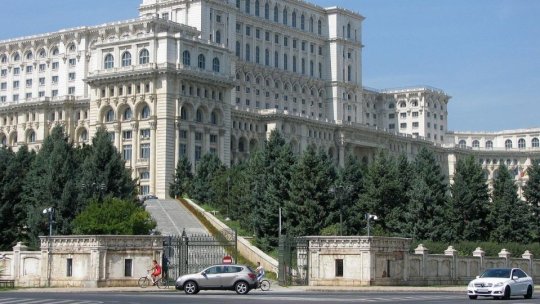Romania to Sign a New Precautionary Agreement
The Bucharest authorities have agreed on a new precautionary agreement with the IMF and the European Commission after the successful completion of a similar one this June.

Articol de Radio România Internaţional, 04 August 2013, 14:26
Romania has agreed on the terms of a new precautionary agreement with the international financial institutions.
The new agreement is worth 4 billion euros and will cover a period of two years. The money will be granted in equal shares by the IMF and the European Commission and will only be used in extraordinary situations, as Prime Minister Victor Ponta explained:
“We believe, and so do our partners, that Romania will not need to use any of the money granted under the new agreement. On the contrary, we will continue to pay the loan we took last time. It is simply a way to prove that Romania’s credibility has improved, but we will not use this money. This money reserve is always used in exceptional cases - and that’s not only Romania’s case - to cover the budget deficit for short periods of time. Romania doesn’t need to resort to this reserve anymore.”
According to PM Ponta the terms of the agreement will be presented to Parliament in September.
The head of Government has stated that the privatization of other state companies is not stipulated in the agreement.
The head of the IMF mission in Bucharest, Andrea Schaechter has recommended Romania to use the new financing programme as a tool to speed up reforms and strengthen economic stability and has pointed to the main sectors with potential for development in the upcoming period.
Talking about the new agreement, Andrea Schaechter has said that just like with the previous programmes, the energy and transport sectors continue to be essential. Romania abounds in resources but investment in infrastructure in these sectors is insufficient. However, solutions can be found, such as a deeper involvement of the private sector, at first with small share packages. This would render the two sectors more transparent and eventually more efficient.
On the other hand, Andrea Schaechter has pointed out that the new arrangement with Romania includes provisions to cut arrears and avoid growing debts.
She has also explained that the amounts the state owes to the private sector need to be paid to avoid blockages in the economy.
The small and medium sized companies are the most affected, because of their lack of access to finances, in spite of the loan programmes for the SMEs guaranteed by the state.
Andrea Schaechter has underlined that problems in this field need to be identified and solved and that the Fiscal Administration Agency has to work closely with the SMEs and agree on redundancies and payment rescheduling in order to help them pay their contribution to the state budget.
Carrying on the health system reform is another priority of the new economic programme agreed on with the international lenders.
The new precautionary agreement is to be submitted to the IMF board for approval this autumn.
More news on RRI.









